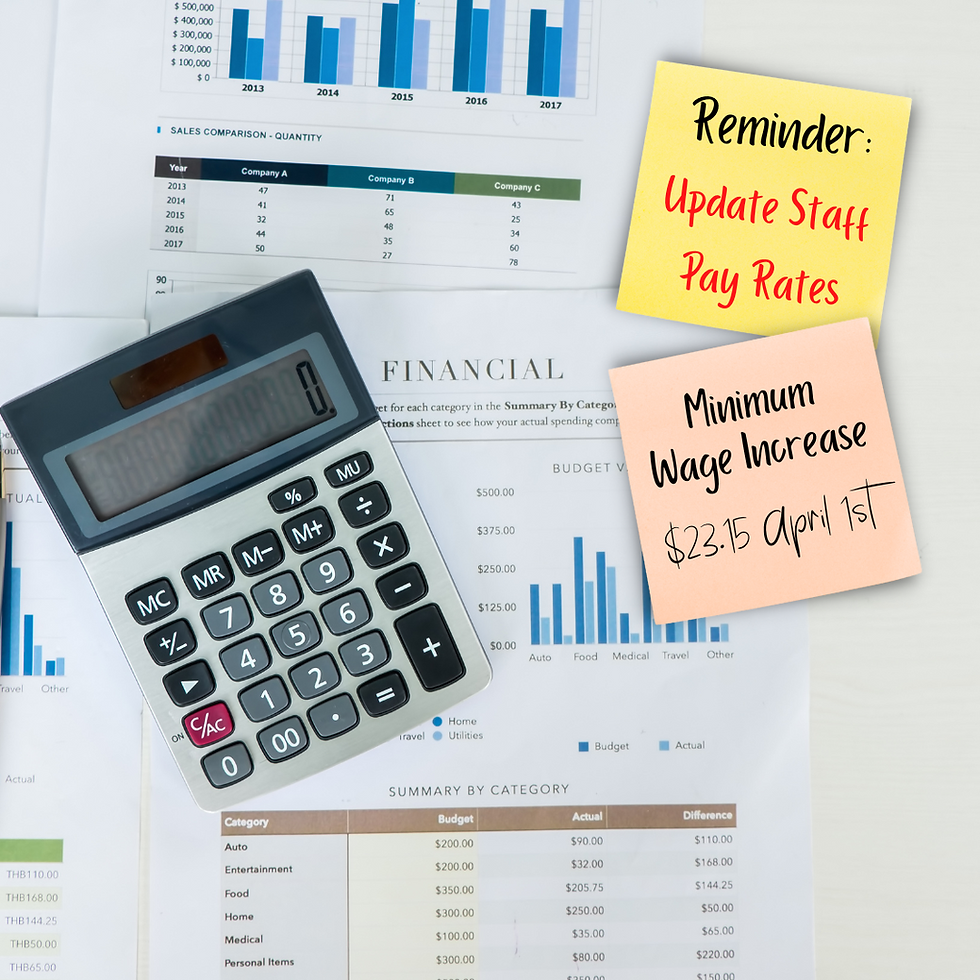COVID-19 TAX UPDATE
- Mar 28, 2020
- 3 min read

COVID19 Tax Update
Here is the COVID-19 Tax Update on how to treat the tax on the Government subsidies you are likely making use of, as well as what the IRD is expecting too during this time.
THE WAGE SUBSIDY
The Government is asking for businesses to try and keep employees in employment while we get through these times and to try your best at paying your staff a minimum of 80% of their regular wage.
If that is not possible to achieve then apply for the wage subsidy to help. (Read updated information on changes to wage subsidy here.)
Ensure you have discussed the application with your named employees and that they have consented (preferably in writing) to use their information in the application supplied to and used by the Ministry of Social Development.
This results in $585.50 per week for full-time employees (working 20 hours or more), and $350 per week for part-time employees (working less than 20 hours).
Casual employees are also included if they would have been expected to work during the time you will receive the wage subsidy.
Wage subsidies should be passed onto the employee and processed as part of the employee’s normal wages. All deductions (such as PAYE, KiwiSaver and child support) should be made as normal.
Remember this is a subsidy to help you meet the 80% minimum, so a top-up may be required which could be through cash payments or annual leave but ensure this is arranged with your employees.
This also does not limit you to paying more than 80% of a regular wage if you see appropriate.
THE TAX TREATMENT FOR EMPLOYERS
1. Tax treatment on the wage subsidy received
As an employer, the lump sum wage subsidy payment received for employees will be treated as non-taxable income.
This subsidy is also exempt from GST.
2. Employee tax on the weekly wage payments
This is processed like normal wages so it will require normal deductions such as PAYE, Kiwisaver and child support.
There is no tax deduction for the employer on this portion of wages that is paid out using the subsidy, only on any top-up portion you contribute yourself.
3. Tax treatment of the Leave Payment
This is treated exactly the same as the wage subsidy above.
BUT I AM SELF EMPLOYED?
If you are self-employed you can also apply for the wage subsidy however the tax treatment is different.
The subsidy payment received will be treated as income for tax purposes as it is a payment to replace the loss of earnings at this time.
DON'T CLEARLY FIT IN THOSE BOXES?
Shareholders:
You can apply for the subsidy if you work in the business and are paid a wage or salary or draw an income for the work you do in the business.
Add your details in the Employee form as well.
Partnerships:
If each partner that works for the business is paid a wage or salary or draws an income for the work they do can apply.
One partner to apply in the Employee form on behalf of the other partners and list the partners as employees.
Contractors:
You are entitled to apply for the wage subsidy under the self-employed application.
TAX, GST & PAYE FILING AND PAYMENTS
The IRD is asking that Tax, PAYE and GST returns are still filed as normal, however, they are not expecting that payments will be made on time if you can’t manage it. Therefore they have announced that late payment penalty interest will not be charged on any period during this time.
This includes the upcoming March 2020 GST returns for two-monthly and six-monthly filers, due on the 7th of May 2020.
The tax payments dates for April and May are also included so don’t feel pressured to make these payments on time if it will burden you financially.
The Team at Tag is here to help you with your tax and business issues and to keep you up to date with any further important announcements. Contact us now if you need some help or advice.




Comments